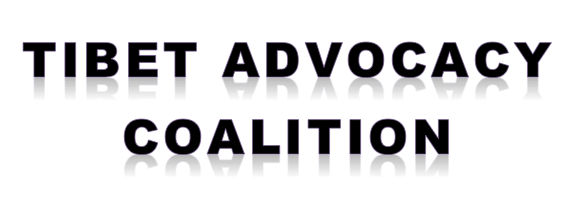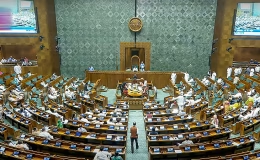Press Release: 18 November 2015
[For Immediate Release]
United Nations: China Raise False Information about Tenzin Delek Rinpoche’s Death
Tibet, Uyghur and Southern Mongolian activist leaders slam China’s defensive responses about torture abuses during the United Nations Committee on Torture Review[1]
[Geneva] China has shocked activists at the United Nations Committee Against Torture (CAT)’s review of its torture record with the extent of false information it presented to the Committee, including about late Tibetan political prisoner Tenzin Delek Rinpoche, and the endemic use of torture in Chinese detention facilities.
China was responding to robust questions posed by the Committee on issues ranging from use of torture methods including interrogation chairs and solitary confinement, to medical access for detainees. The Committee particularly requested information about political prisoners, including 24 Tibetans and a number of Uyghurs.
The Chinese delegation responded defensively, but refused outright to go into specific cases. A notable exception to this was the case of Tenzin Delek Rinpoche, which the Chinese delegation addressed following the attention on him since his early death in custody in July 2015. [2] Audible gasps were heard when a Chinese diplomat claimed “there are no political prisoners in China”, despite sitting a few metres away from Tibetan torture survivor Golog Jigme. [3]
“China said there were no such things as political prisoners in Tibet, or interrogation chairs used for torture. I am living proof that those statements are lies,” said Tibetan torture survivor Golog Jigme. “In 2008 I endured over one month of excruciating torture while fastened to a notorious “iron chair” simply for making a film about Tibet. My body now shows more evidence of torture than China brought to offer to this Review”.
Offering surprise information about Tibetan political prisoner Tenzin Delek Rinpoche, China claimed he had received adequate medical treatment. and that his body was cremated “according to local customs” and his ashes scattered locally with his family in attendance. In reality, Chinese authorities rushed Tenzin Delek Rinpoche’s cremation, without due respect to Tibetan traditional death rites, and placed his family under house arrest for requesting an investigation into his death.
“The late Tibetan Buddhist leader Tenzin Delek Rinpoche was the only case which China raised in detail during their contentious review by the UN Committee against Torture. This highlights the prominence of Tenzin Delek Rinpoche’s death at the highest level of the Chinese government” said Padma Dolma of Students for a Free Tibet. “China falsely claimed that his death was unrelated to torture, while the evidence provided by his family is that he had been visibly tortured before he died. Despite China’s blatant lies, they have unwittingly opened the door for a reexamination of the suspicious circumstances of his death.”
“The Committee members have been strong in their review of China, however China’s responses leave a sour taste, especially given the opportunity for them to offer open and honest account of the situation” said Mandie McKeown of International Tibet Network. “We call on UN Member States and independent experts to press China for specific dates for a visit by Juan Mendez, the Special Rapporteur on Torture, which must include unfettered access to Tibet, East Turkestan and Southern Mongolia, and we urge all governments to press for this agreement at the highest possible level.”
– Ends –
Contacts:
Padma Dolma, Students for a Free Tibet [English, German, Tibetan] +41 765886506
Golog Jigme, Tibetan Human Rights Defender and former Political Prisoner [Tibetan; for English/German/French with translation please call other contact first] +44 (0)7748158618
Mandie McKeown, International Tibet Network [English] +44 (0)7748158618
Togochog Enghebatu, Southern Mongolian Human Rights Information Center [English, Mongolian] +1 (917) 698-4367
Dolkun Isa, World Uyghur Congress [English, German, Uyghur] +49 89 54321999
Iona Liddell, Tibet Justice Center [English] +97 79810173996; execdir@tibetjustice.org
Notes
- The UN Committee Against Torture (CAT) is the body of 10 independent experts that monitors implementation of the Convention against Torture and Other Cruel, Inhuman or Degrading Treatment or Punishment by its State parties. Tibet Advocacy Coalition has submitted a joint report to the Committee detailing the situation in Tibet and for Uyghurs and Mongolians under Chinese rule. You can view it here – https://tibetnetwork.org/tac-cat-submission/
- While serving a life sentence, Tenzin Delek Rinpoche, a highly respected Tibetan Lama renowned for welfare activities and promoting Tibetan culture, died during his thirteenth year of detainment. In the List of Issues document submitted by the Coalition, the organizations raised concerns about Tenzin Delek Rinpoche’s treatment and the urgency of his need to be released on medical parole. Following complaints by these groups, family members, and others, China reaffirmed its adoption of Regulations on Administrative Detention Facilities, which provides detainees the right to medical care. Tenzin Delek Rinpoche was tortured, denied medical treatment, and died in prison as a result on 12 July 2015. After seeing his body, Tenzin Delek Rinpoche’s sisters reported that “his lips and fingernails had turned black; they believed he was murdered.”
- Tibet Advocacy Coalition groups attended the United Nations Committee on Torture from 16 to 18 November, represented by a team of seven Tibetans and Tibet activists, along with Uyghurs and Southern Mongolians from across Europe and the US. Golog Jigme was arrested for helping Dhondup Wangchen interview Tibetans for the film “Leaving Fear Behind.
- The Groups attending the CAT review are;
International Tibet Network, www.TibetNetwork.org
Students for a Free Tibet, https://www.studentsforafreetibet.org/
Tibet Justice Center, http://www.tibetjustice.org/
Tibetan Youth Association Europe, http://www.tibetanyouth.org/
World Uyghur Congress, http://www.uyghurcongress.org/
Southern Mongolian Human Rights Information Center,
Boston University School of Law’s International Human Rights Clinic – https://www.bu.edu/law/central/jd/programs/clinics/international-human-rights/





